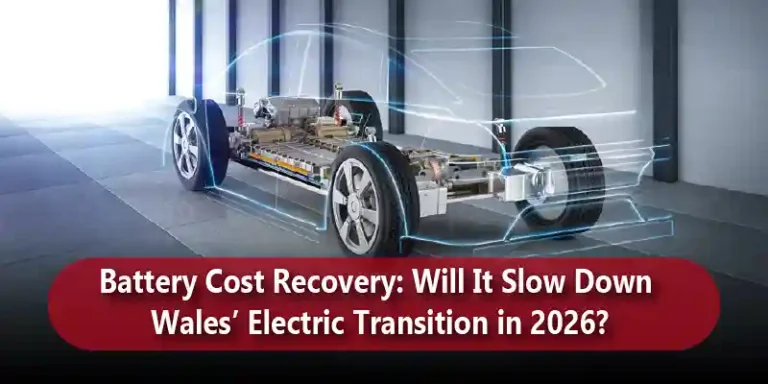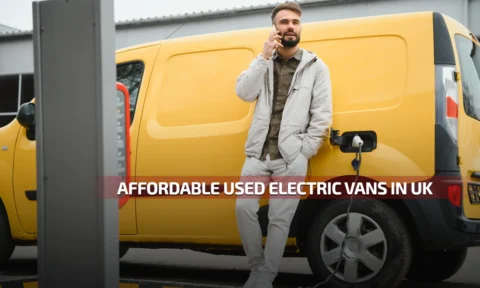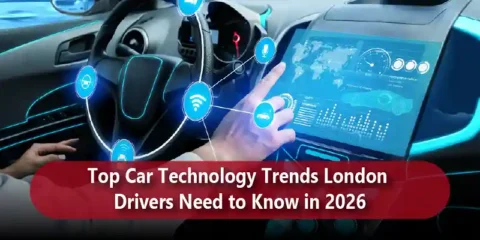Wales is at the heart of the UK’s commitment to a cleaner, greener future. The ambitions are clear and compelling: a transition to zero-emission vehicles that will drastically cut carbon emissions and improve air quality across the nation. At the forefront of this movement is a crucial and often overlooked date: 2026. This year is set to be a significant tipping point for EV adoption in Wales in 2026, marked by both exciting advancements in technology and the emergence of new, challenging financial realities.
The grand goal, set by the Welsh Government, is nothing less than the vision of Wales’ net-zero transport 2035. Achieving this monumental task relies heavily on the rapid, widespread adoption of electric vehicles. However, a significant policy discussion is now emerging that has the potential to either secure or seriously disrupt this journey: the implementation of a comprehensive electric car battery cost recovery policy.
Will this necessary move towards economic sustainability, often referred to as battery cost recovery in Wales, act as a hidden tax on early adopters, or is it a vital piece of the puzzle that ensures a truly sustainable, long-term Wales electric vehicle transition? This comprehensive analysis delves into the technical, economic, and policy dynamics at play, providing an essential guide for anyone invested in the future of Welsh transport.
The Welsh Ambition: Charting a Course to Net Zero
The commitment to a greener Wales is underpinned by ambitious statutory goals. The Wales net-zero transport 2035 target places immense pressure on the transport sector, which remains one of the largest contributors to carbon emissions. The zero-emission vehicles Wales policy isn’t just a guideline; it’s a strategic roadmap that prioritises a ‘shift, improve, reduce’ model, encouraging a shift to sustainable travel, improving vehicle efficiency, and reducing the need to travel altogether.
For the ‘improve’ pillar, mass EV adoption is non-negotiable. Success by 2035 hinges on the momentum built in the immediate years, making the 2026 forecast especially critical. If the rate of EV adoption in Wales in 2026 is not sufficient, the gap that needs to be closed in the following decade becomes exponential, threatening the credibility of the entire transition.
The Core Debate: What is Battery Cost Recovery?
At its simplest, battery cost recovery is an economic mechanism designed to account for the full life-cycle cost of an EV battery. Unlike a conventional engine, a lithium-ion EV battery has a long service life beyond the vehicle itself, followed by a necessary, energy-intensive recycling process.
In a mature, circular economy, the cost of this future recycling, as well as the eventual recovery of critical materials, must be factored into the overall cost structure. This is where the proposed electric car battery cost recovery policy comes into play.
There are two primary models for implementing battery cost recovery in Wales
- Upfront Fee Model: A fixed or percentage-based fee added to the purchase price of the new EV, designed to cover the future EV battery recycling costs UK.
- Lease/Subscription Model: The battery remains the property of the manufacturer or a third-party, and the ‘cost recovery’ is baked into a monthly lease fee or a usage-based fee throughout the vehicle’s life.
The looming question for the Welsh transition is simple: if this policy translates into a higher upfront or running cost for consumers in 2026, will it erode the critical price parity tipping point and seriously hamper EV adoption in Wales in 2026?
The Economics of Sustainability: EV Battery Recycling Cost UK
The underlying driver for any electric car battery cost recovery policy is the high cost and environmental necessity of robust recycling. The EV battery recycling cost UK is a complex figure, influenced by several factors:
- Logistics and Transportation: Safely moving large, degraded battery packs requires specialised infrastructure and certified carriers.
- Shredding and Hydrometallurgy: The technological processes for efficiently recovering materials like lithium, cobalt, and nickel are energy-intensive and currently operate on a relatively small scale.
- Commodity Price Volatility: The final net cost is offset by the value of the recovered materials, which fluctuates with global commodity markets.
Experts suggest the true EV battery recycling cost UK may be anywhere from £100 to over £1,000 per kWh of battery capacity today, though this is falling rapidly. A transparent and fair battery cost recovery Wales policy must accurately forecast this cost in 2026 and implement a fee that does not disproportionately impact consumers. If the fee is perceived as too high or poorly justified, it will become a significant headwind against the Welsh electric vehicle transition.
The Global View: Electric Vehicle Battery Cost Trend 2026
The good news is that the core component cost is plummeting. Goldman Sachs and Bloomberg NEF have issued optimistic projections for the future of battery manufacturing. This global momentum is the single biggest factor supporting the long-term success of the Welsh electric vehicle transition.
Key Forecasts for the UK EV Battery Cost per kWh 2026:
- The Tipping Point: The globally accepted figure for when an EV truly reaches cost parity with an ICE vehicle is a battery pack price of around $100 per kWh
- The 2026 Prediction: Industry analysis suggests the UK EV battery cost per kWh in 2026 will not only hit this $100 milestone but may drop even further, potentially reaching $80-$90 per kWh. This is a dramatic reduction from the 2023 average of $149 per kWh.
- Impact on Price Parity: With the battery accounting for up to 40% of an EV’s manufacturing cost, this drop means the final showroom price is set to become highly competitive.
The challenge for the electric car battery cost recovery policy is to ensure that any additional fee does not completely negate the savings gained from this plummeting electric vehicle battery cost trend in 2026. Policy must follow technological progress, not ignore it.
Closing Remarks: The Choice for Wales in 2026
The question of whether battery cost recovery in Wales will slow the Wales electric vehicle transition is fundamentally a question of policy design. The technological and economic wind is in Wales’s sails: the electric vehicle battery cost trend 2026 is overwhelmingly positive, pushing EVs to the brink of mass market affordability.
If the Welsh Government implements a clumsy, opaque, or excessive electric car battery cost recovery policy, it risks nullifying the gains from the dropping UK EV battery cost per kWh in 2026, creating the very consumer resistance that could jeopardise the path to Wales’ net zero transport 2035.
However, if the policy is enacted with transparency, foresight, and a focus on integrating it with the circular economy, it will secure the long-term sustainability of the entire electric ecosystem. The year 2026 is not just about adopting EVs; it’s about building an enduring electric future. The right policy choice will ensure that EV adoption in Wales in 2026 becomes unstoppable.
Frequently Asked Questions
Battery cost recovery in Wales refers to a policy mechanism aimed at recovering the full environmental and economic cost associated with the final stages of an EV battery’s life. This ensures the future financial burden of dealing with spent batteries is managed sustainably, rather than being left to the taxpayer or the environment. It is a critical component for a complete and responsible Wales electric vehicle transition.
Yes, the UK EV battery cost per kWh 2026 is forecasted to drop significantly, bringing down the upfront cost of the vehicle. A well-designed electric car battery cost recovery policy should be minor enough to be absorbed by these manufacturing savings, maintaining the overall affordability necessary for high EV adoption Wales 2026.
The high EV battery recycling cost UK means that without a dedicated policy, the future disposal cost is not accounted for. An effective battery cost recovery Wales policy ensures this cost is integrated, either through a small upfront fee, a long-term lease, or a mandatory return scheme, securing the long-term viability of the zero-emission vehicles Wales policy.
While new policies like battery cost recovery in Wales can cause concern, the current primary barrier to widespread EV adoption Wales 2026 is the lack of ubiquitous and reliable EV charging infrastructure Wales, particularly for residents without private driveways and in rural areas. Addressing charging anxiety is critical to meet the Wales net zero transport 2035 targets.
No, while the specific implementation of an electric car battery cost recovery policy is a decision for the Welsh Government, the underlying principle of Extended Producer Responsibility and ensuring sustainable end-of-life battery management is a challenge faced by all countries committed to a deep electric vehicle battery cost trend 2026 and mass EV adoption. It’s a global sustainability issue.
For daily electric car hacks, essential tips, and the latest on policy changes affecting your transition, join the conversation at Ask about cars.
For more related blogs, continue reading the articles listed here.







